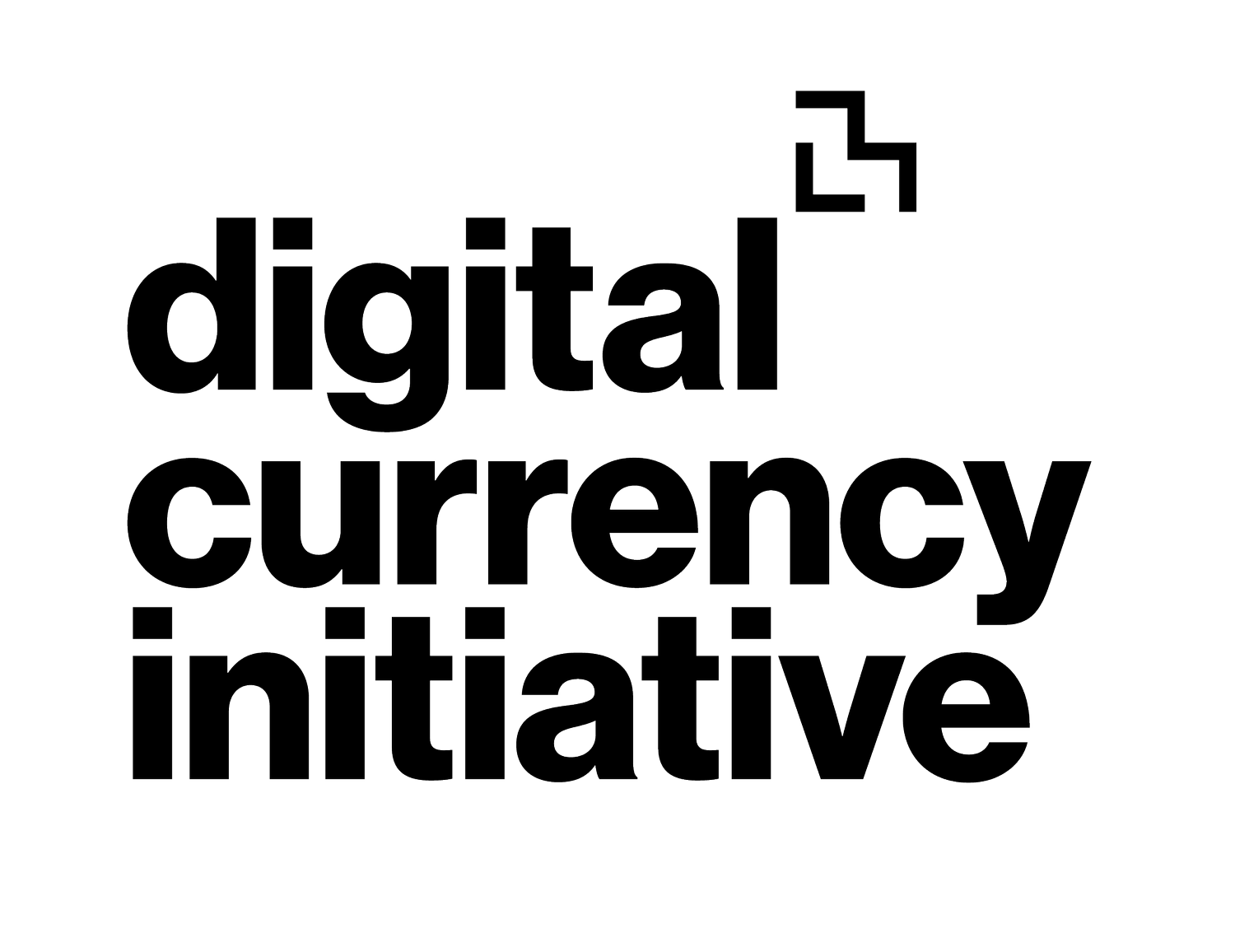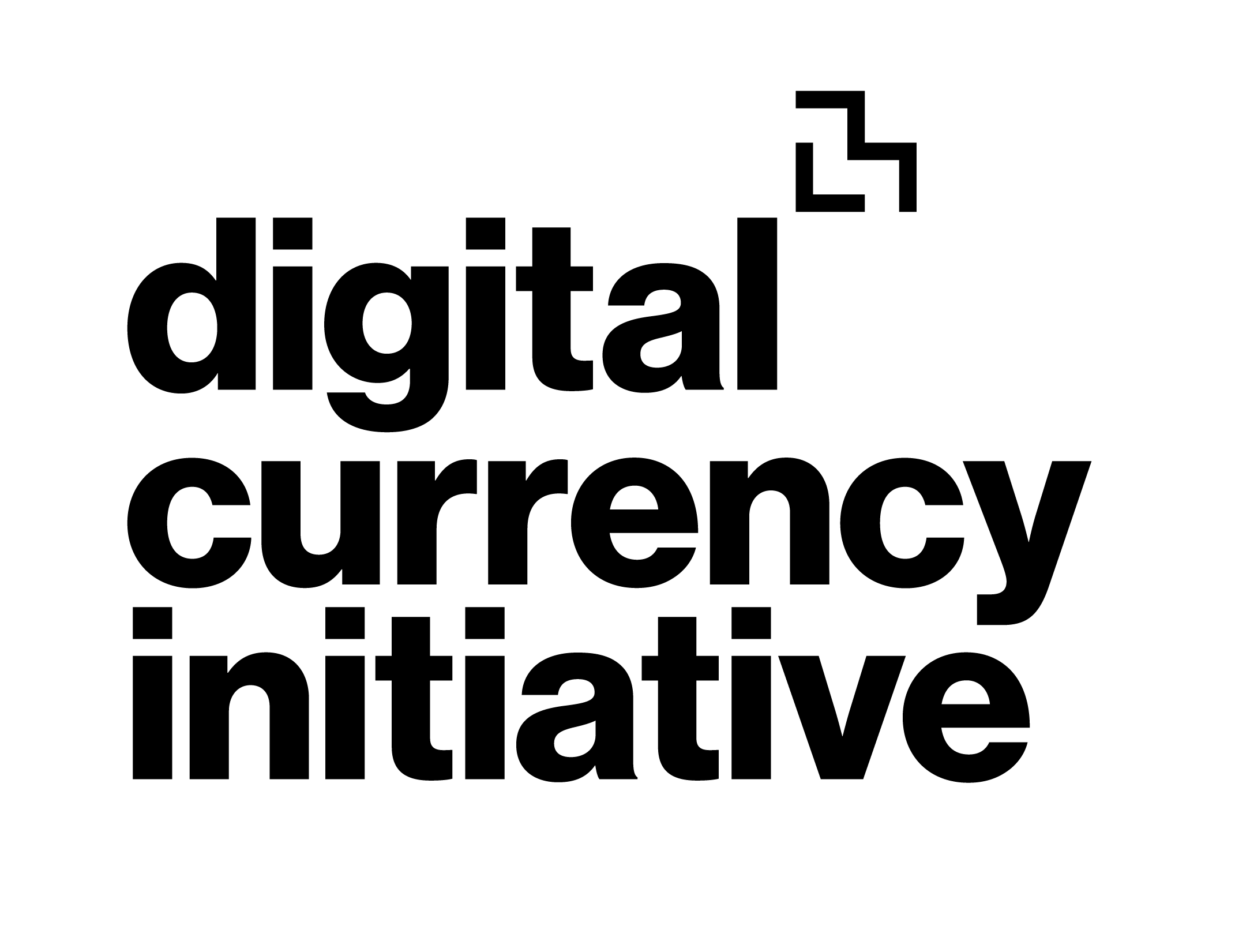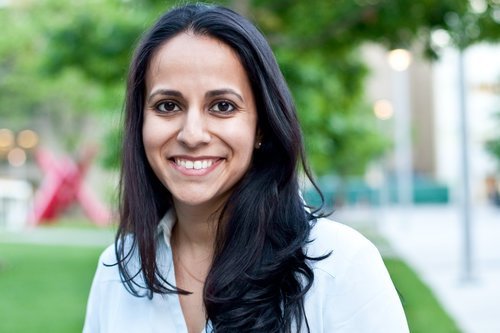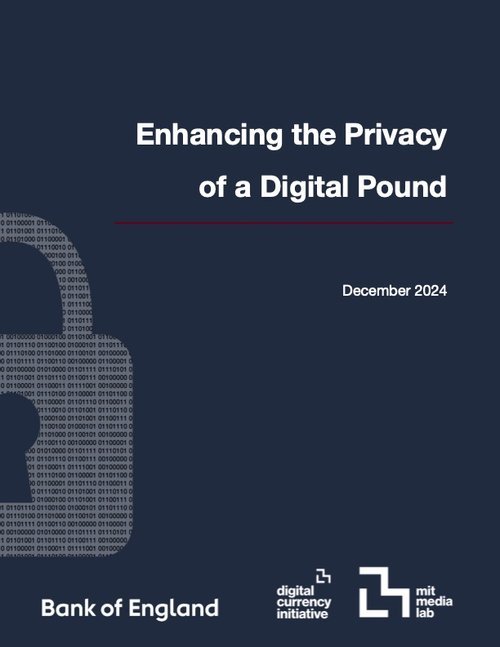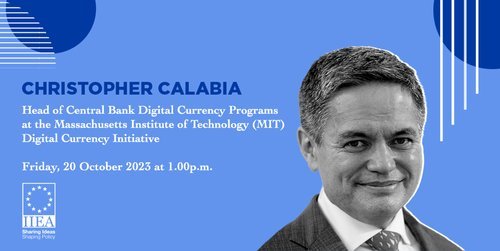
Decentralizing trust, empowering individuals, and disrupting power structures with cryptographic peer-to-peer exchange
Latest News
The MIT DCI participated in the Department of Treasury's Advanced Notice of Proposed Rulemaking on the GENIUS Act. We submitted our letter alongside nearly 400 other industry participants who are interested in advancing stablecoin regulation in the United States. We aimed to highlight a few key risks of stablecoins that warrant deeper consideration and that we plan to expand upon during the subsequent NPRM.
In this issue:
We launched DCI Global, a global research and education network
Updates on Bitcoin and stablecoins research
Special thanks to Madars Virza, after 8 years at the DCI
And more ...
Neha Narula, Director of the Digital Currency Initiative at the MIT Media Lab, joined Bloomberg’s Crypto this week to reflect on the recent $19 billion wipeout in digital assets—now the largest crypto liquidation event on record.
“Crypto is still a little bit of the Wild West,” Narula told host Scarlet Fu. “But what’s impressive is that the on-chain systems kept working. No bailouts. No rollbacks.”
The GENIUS Act is a landmark moment for stablecoin regulation in the US and introduces a step forward in bringing private digital dollars into the regulated financial system. But now comes the hard part: regulators from agencies like the Fed, Treasury, OCC and FinCEN will need to work together to decide how these rules get implemented, are enforced and are evolved.
Stablecoin issuers hold a significant amount of US Treasury securities, which is a conventionally conservative strategy. But even the Treasury markets can be susceptible to strain, and if stablecoins grow large enough, a run could cause these markets to seize. Regulators and policymakers are going to have to face the question of whether stablecoin issuers will have access to the Fed Discount Window, and if not, what if any structural safeguards are needed to protect the US Treasury market?
We’re creating a new global research network to 1) study Bitcoin and stablecoin use, especially in the global south, 2) build technology capacity, and 3) understand how to better design applications and protocols to empower people to financially flourish. We’re starting with an MIT-UnB course open to anyone to teach. Get involved here.
Stablecoins are an extension of today’s monetary system and share many attributes with legacy finance. However, a nuanced analysis reveals crucial differences in financial and technical vulnerabilities. In our latest post from the MIT DCI, we explore some of these differences.
In this issue:
Marco added helpful LLM capabilities, including failure summaries and typo detection, to the Bitcoin GitHub repo's DrahtBot pull request assistant
New report on payment tokens with Kinexys Digital Assets at J. P. Morgan
Special thanks to Chris Calabia, and other changes at the DCI
And more ...
The privacy problem in Bitcoin
One downside of using a cryptocurrency like Bitcoin is that all transactions are publicly visible -- anyone in the world can see amounts, spending and receiving addresses, and the transaction graph of all Bitcoin transactions. Though addresses need not contain personally identifying information, a blockchain observer might have access to off-chain information that lets them identify which addresses belong to which users. Users can generate new addresses for every payment, but many don’t, and this doesn’t obscure how funds are further spent.
It is a common misconception that this level of transparency is only an issue for criminals who want to hide how they are moving their money. This is not true. To illustrate why this is a problem even for regular consumers, imagine that a user gets paid by their employer on-chain in bitcoin. The employer can directly observe how the user further spends that money on-chain, and might be able to see, for example, if a user pays to a well-known charity address (donation addresses are typically reused) or to a medical professional. By default, using vanilla Bitcoin can leak sensitive personal information about a user to their employer that we would normally expect to be private.
The Crucial Promise
Stablecoin issuers offer a simple proposition: send one dollar to the stablecoin issuer in exchange for a digital token that represents that dollar on a blockchain. That stablecoin, for example, can be used as a payment tool or a store of value, and the issuer promises to redeem it for a dollar later. This simple promise of 1:1 redemption, known as par-value exchange, is more complicated than many realize and depends on a series of assumptions.
On May 16, 2024, DCI collaborator Dan Aronoff presented a lecture at the MIT Industrial Liaison Program’s NextGen Security Conference entitled “Incorporating Cryptographic Methods in Economics.” DCI research scientist Madars Virza co-created the slide deck with Dan.
Financial infrastructure has long centered on assets in which the spender does not actually hold custody. But self-custody isn’t an aberration ready to be disposed of; it’s a world of potential enhancement to human self-determination! Despite the dominance of intermediated, custodied, payment platforms and shrinking cash use, the rumors of self-custody's death are (hopefully) greatly exaggerated.
2025 marks a milestone year for the Digital Currency Initiative — our 10th anniversary. Founded in 2015, DCI began with a simple but ambitious mission: to advance open-source, neutral digital currency technologies that empower individuals. A decade in, that mission feels more vital than ever.
In this issue:
Our 10 year anniversary
New website launched
Special thanks to software engineer Sam Stuewe
And more...
A year ago I toured the gold vault beneath the New York Fed. You might recall it from the classic 1995 movie Die Hard with a Vengeance, but in case you aren’t familiar: It’s the world’s largest depository of monetary gold, storing over 6,000 tons 80 feet below Manhattan and protected by airtight vaults and its own police force.
The first thing I thought when I was down there was wow, gold is very shiny. The second was wow, gold bars are surprisingly heavy, in part because of its density (bars are 28 pounds). They make you wear metal shoe covers to hold one in case you drop it on your foot. But the third thing I thought is “THIS is what the global monetary system rests on? This is just so antiquated.”
“There’s something to cold hard cash. You can hold it; you can smell it; it feels a certain way in your pocket. Earlier this year, President Donald Trump directed the Treasury Department to stop minting pennies. What happens as the world of currency goes increasingly digital? Will traditional currencies soon become a thing of the past? And who stands to benefit, and who might this rapid shift be hurting? Neha Narula, Director of the Digital Currency Initiative at the MIT Media Lab, joins The Excerpt to take a closer look at this transition period for money and how it might evolve.”
Massachusetts Institute of Technology Digital Currency Initiative (MIT DCI) and Kinexys Digital Payments at J.P. Morgan collaborated on the research and development of a prototype for payment tokens on EVM-based blockchains. This research focuses on the additional capabilities required to meet compliance and regulatory requirements, identifies gaps in existing token standards and proposes two new sets of capabilities to address these gaps. Produced by a joint research team composed of staff from MIT DCI and Kinexys, this report captures the research journey and findings, serving as a valuable reference for the financial services ecosystem in their work on blockchain and tokenization.
In the up-and-down world of cryptocurrency, so-called meme coins are perhaps the most bewildering. The joke-inspired digital currency is all over the internet with new tokens popping up every day by the thousands. The value of some jumped thanks to viral trends or celebrity endorsements. But most never take off, crash or disappear. Economics correspondent Paul Solman reports.
“MIT DCI Director Neha Narula: How Academia Interacts With The Bitcoin Ecosystem
A talk with the director of DCI at MIT, Neha Narula, on the role academia plays in the Bitcoin ecosystem and how that might evolve over time.”
In this issue:
Two new Bitcoin Core developers: Wladimir returns and Sebastian joins us
New paper on privacy and the digital pound with the Bank of England released
Neha Narula selected for Rockefeller Foundation’s Bellagio Center Residency
Student researcher Ishaana Misra wins Chaincode’s inaugural Bitcoin Scholarship
And more...
Neha Narula, Director of the MIT Digital Currency Initiative (DCI), has been selected for the Rockefeller Foundation's 2025 Bellagio Center Residency.
In this issue:
Neha Narula's keynote speech at AFT '24 in Vienna
BIS General Manager Agustín Carstens visits MIT
DCI Advisor Simon Johnson receives Sveriges Riksbank Prize in Economic Sciences in Memory of Alfred Nobel 2024
And more...
“In the West there has been significant resistance to the concept of retail central bank digital currencies (CBDC) based on ‘Big Brother’ concerns. In other words, privacy fears that the government can monitor personal payment transactions. Or sometimes, even concerns that they might attempt to control behaviors. Hence, the Bank of England and the Massachusetts Institute of Technology Digital Currency Initiative (MIT DCI) published a paper exploring privacy enhancing technologies (PETs) for a possible digital pound.”
As innovation in electronic payments accelerates, privacy considerations are becoming ever more important. While the generation and use of data is an intrinsic part of electronic payments and can benefit consumers and businesses, it may also present privacy concerns, particularly if there are not sufficient safeguards.
Why does innovation in financial services matter to everyone, and how can the public sector support its advancement? On Thursday, September 26, MIT’s Digital Currency Initiative was privileged to host a visit and fireside chat at the Media Lab on these questions and on the future of money with Dr. Agustín Carstens, General Manager of the Bank for International Settlements in Basel, Switzerland.
In this issue:
New student thesis on mitigating undercutting attacks in Bitcoin
2024 MIT Bitcoin Expo roundup
Final issue of the Cryptoeconomic Systems journal and the journal’s new publisher
New papers and collaborations shared
And more...
DCI’s Madars Virza wins a test-of-time award at IEEE Symposium on Security and Privacy
Madars Virza SM '14, PhD '17, a Research Scientist at the MIT Media Lab's Digital Currency Initiative (DCI), is the recipient of an IEEE Symposium on Security and Privacy Test of Time Award for “Zerocash: Decentralized Anonymous Payments from Bitcoin,” a paper he co-authored in 2014.
Madars Virza SM '14, PhD '17, a Research Scientist at the MIT Media Lab's Digital Currency Initiative (DCI), is the recipient of an IEEE Symposium on Security and Privacy Test of Time Award for “Zerocash: Decentralized Anonymous Payments from Bitcoin,” a paper he co-authored in 2014.
In this issue:
Bitcoin Fridays
New collaboration announced
Engineering for privacy in central banks
New faces at the DCI
And more!
On April 16, Dr. Joachim Nagel, President of the Deutsche Bundesbank, the central bank of Germany, visited the MIT Media Lab. There, he announced this new collaboration between the Bundesbank and the DCI for central bank digital currency design research.
In October, former central banker Chris Calabia of MIT’s Digital Currency Initiative (MIT DCI) gave a talk at The Institute of International & European Affairs titled “Towards a Central Bank Digital Currency? One View from the United States.”
In this, the second of the IIEA’s mini-series of webinars on the subject of central bank digital currencies (CBDCs), Chris Calabia, Head of CBDC Programs at the Massachusetts Institute of Technology (MIT) Digital Currency Initiative, shares recent research on the opportunities and challenges presented by the potential introduction of a CBDC like a ‘digital dollar’. Mr. Calabia addresses practical and policy questions that this digital asset could raise for our economies and societies, including whether CBDCs could promote greater financial inclusion and how to safeguard privacy while mitigating other risks like fraud and money laundering.
